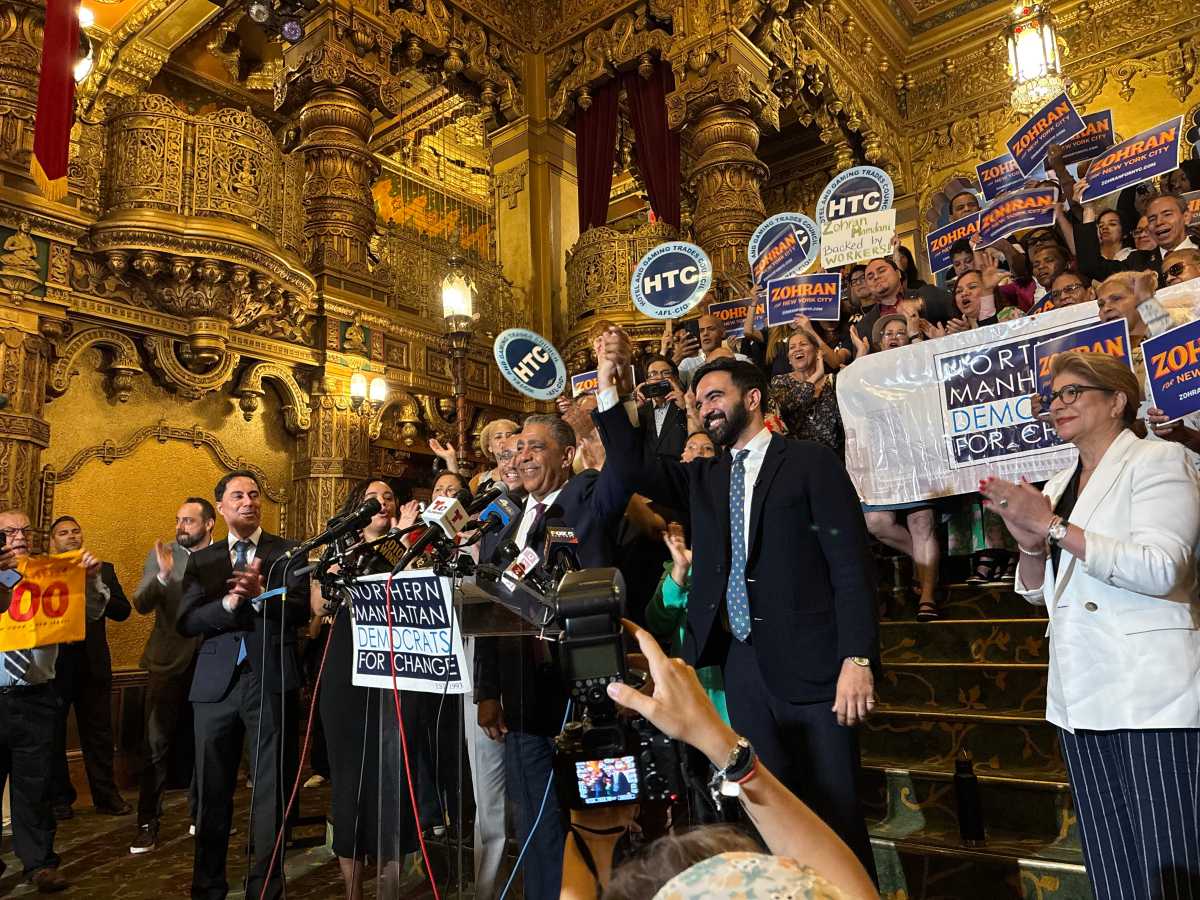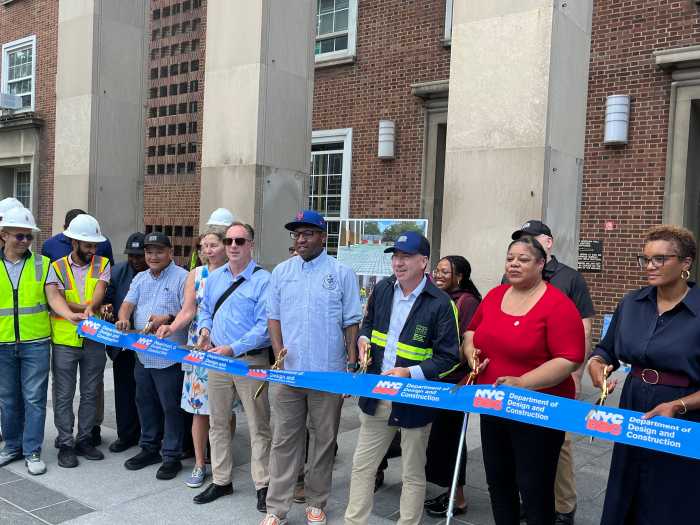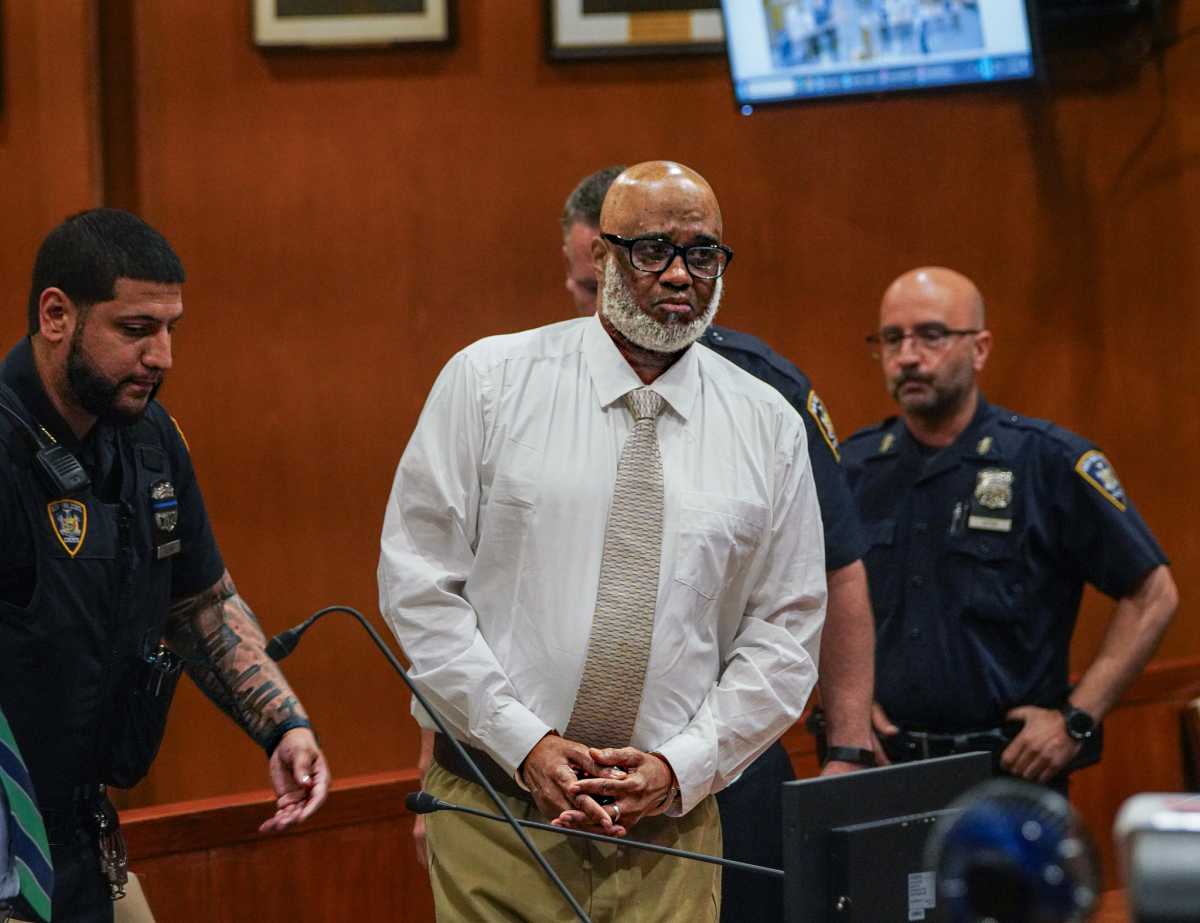By Jeremy Walsh
Their apartments may be cold and pest-ridden, but a group of Queens tenants are fighting their corporate landlord to keep their rent-regulated spots in the face of what they are calling eviction tactics.
About 30 tenants of four Sunnyside apartment buildings along Skillman Avenue came out to protest the practices of their landlord, the private equity-backed firm Ramius Capital Group-Urban American, which bought the buildings a year and a half ago.
“We are concerned that Urban American is ignoring tenants with real problems, while continuing to increase rents,” said Chloe Tribich, a tenant organizer for Housing Here and Now. The group believes Urban American is attempting to push longtime tenants out of their rent-regulated apartments in order to get the dwellings deregulated.
The buildings contain both rent-controlled and rent-stabilized apartments.
“For 24 days, the boiler was either not working or working two hours a day,” said tenant Anthony Luzzi, who shares a rent-controlled apartment with his wife. “I was not able to take a hot shower for 21 of these days.”
Grace Eng, who has lived in one of the buildings for 12 years, said she has experienced mold and mildew in her ceiling, as well as infestations of mice, roaches and bedbugs.
“These are harassment tactics from the landlords,” she said.
Douglas Eisenberg, Urban American's chief operating officer, refuted the tenants' claims of neglect and said his company was trying to restore the old buildings.
“We have spent approximately $2.5 million on building-wide improvements and on occupied apartments,” he said in a prepared statement.
The work included boiler upgrades, common area improvements, new front doors and intercoms, new security systems, landscaping, fire escapes and improvements and repairs in individual-occupied apartments, he said.
But Benjamin Dulchin, deputy director of the Manhattan-based advocacy group Association for Neighborhood and Housing Development, said private equity-backed landlords in the city are not making building improvements for the benefit of existing tenants.
“They're putting money into the building because their model is to attract tenants who will pay a higher rent,” he said, noting a state law allows a landlord to have a rent-stabilized apartment decontrolled once it is vacated and the rent exceeds $2,000 a month.
The typical rate of return on rent-regulated apartment buildings is between 7 percent and 8 percent, Dulchin said. But because the backers of these companies are competing with other private equity funds on Wall Street, the expected rate of return ranges between 15 percent and 20 percent, he said.
“There's something new and different happening with these guys, more aggressive and dangerous,” Dulchin said, noting private equity-backed firms have bought up more than 90,000 rent-regulated housing units about 9 percent of the total number in the city over the past four years.
The number of rent-regulated residences in the city has been on the wane since a 1971 law allowed for the decontrolling of rent-controlled apartments. Between that time and 2005, the number of rent-controlled units fell from more than 1 million to 43,000, according to the New York City Rent Guidelines Board.
The number of rent-stabilized units deregulated due to rents above $2,000 went from about 3,000 units in 2000 to nearly 10,000 units in 2006, according to the Rent Guidelines Board.
Reach reporter Jeremy Walsh by e-mail at jwalsh@timesledger.com or by phone at 718-229-0300, Ext. 154.

































